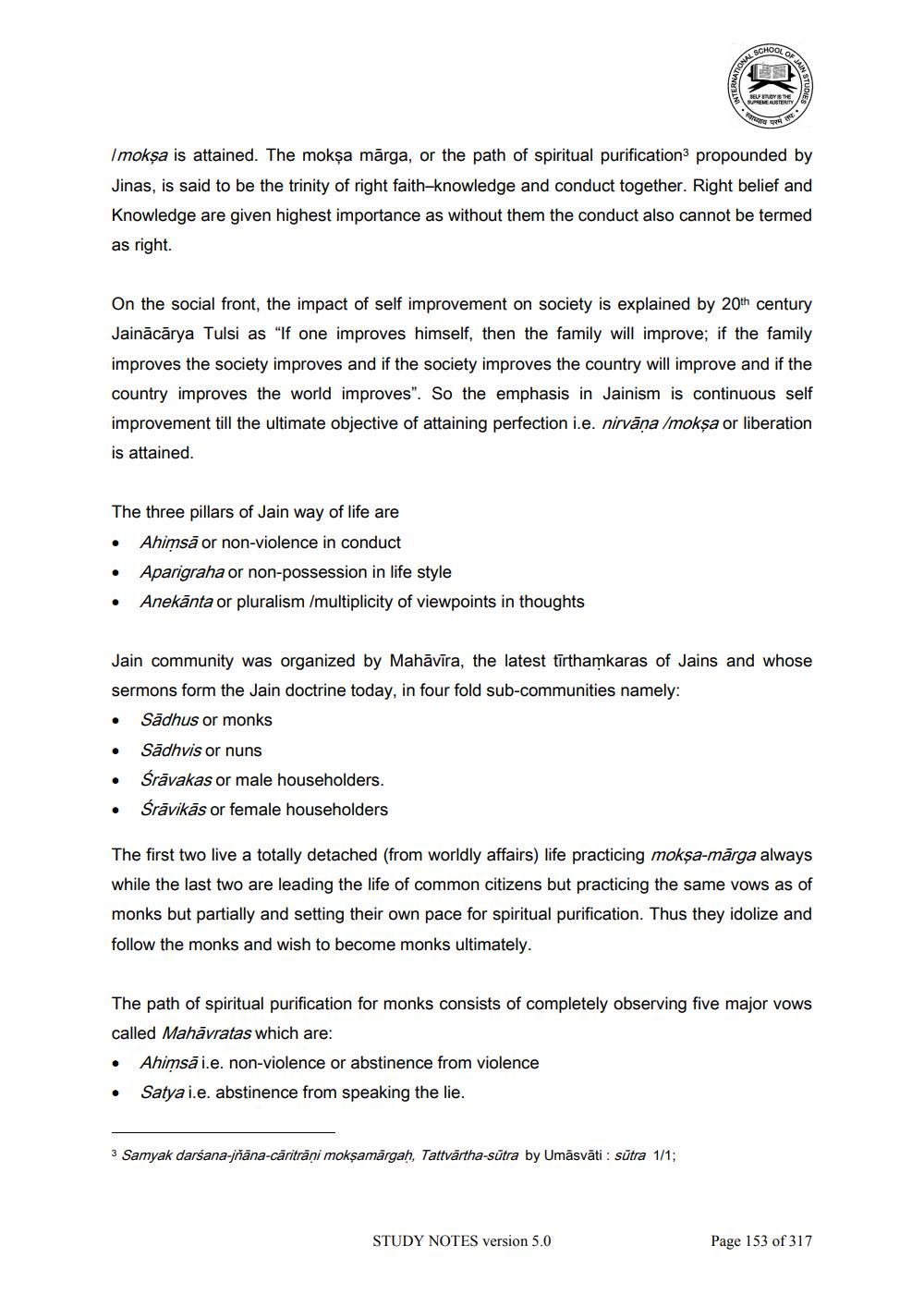________________
Imokşa is attained. The mokṣa mārga, or the path of spiritual purification propounded by Jinas, is said to be the trinity of right faith-knowledge and conduct together. Right belief and Knowledge are given highest importance as without them the conduct also cannot be termed as right.
On the social front, the impact of self improvement on society is explained by 20th century Jainācārya Tulsi as "If one improves himself, then the family will improve; if the family improves the society improves and if the society improves the country will improve and if the country improves the world improves”. So the emphasis in Jainism is continuous self improvement till the ultimate objective of attaining perfection i.e. nirvāṇa /mokṣa or liberation is attained.
The three pillars of Jain way of life are • Ahimsā or non-violence in conduct • Aparigraha or non-possession in life style
Anekānta or pluralism /multiplicity of viewpoints in thoughts
Jain community was organized by Mahāvīra, the latest tīrthamkaras of Jains and whose sermons form the Jain doctrine today, in four fold sub-communities namely: • Sādhus or monks
Sadhvis or nuns
Śrāvakas or male householders. • Śrāvikās or female householders
The first two live a totally detached (from worldly affairs) life practicing mokşa-mārga always while the last two are leading the life of common citizens but practicing the same vows as of monks but partially and setting their own pace for spiritual purification. Thus they idolize and follow the monks and wish to become monks ultimately.
The path of spiritual purification for monks consists of completely observing five major vows called Mahāvratas which are: • Ahimsa i.e. non-violence or abstinence from violence • Satya i.e. abstinence from speaking the lie.
3 Samyak darśana-jñāna-caritrāni mokşamārgah, Tattvārtha-sutra by Umāsvāti: sūtra 1/1;
STUDY NOTES version 5.0
Page 153 of 317




